About
Cargill
Cargill provides food, agriculture, financial and industrial products and services to the world. Together with farmers, customers, governments and communities, we help people thrive by applying our insights and over 150 years of experience. We have 155,000 employees in 70 countries who are committed to feeding the world in a responsible way, reducing environmental impact and improving the communities where we live and work.

Focus Area
Consumer awareness (for e.g. Dietary diversification);h. Education and awareness (for e.g. Classroom education, women empowerment, early child development, child protection, mid-day meals, awareness campaigns for malaria, AIDS, tuberculosis etc.
Target State
Karnataka
Objectives
" In partnership with Cargill, TechnoServe is implementing a 4-year Local Economic Development (LED) project to help build and strengthen community engagement and forge a relationship with the farming community adjoining the Cargill wet corn milling plant in Davangere. This engagement, through planned interventions, can create a mutually beneficial scenario for both Cargill as well as the farming community. The program focuses on farmers across 27 villages within a 15-20 km radius of the plant in Belludi in Harihara taluka.
Key Pillars of the Intervention
éAn Agriculture Development & Diversification intervention implemented with 5,000 farming households. The program aims at providing two years of high touch and one year of light touch capacity building support to farmers to strengthen their existing portfolio of crops by improving productivity and crop diversification.A Livelihood opportunities developed for the youth of the farming households through Cargill Agri Fellow Program. TechnoServe-initiated Cargill Agri Fellow program will provide skills and enterprise-based livelihood opportunity to youth from the faming households and will also address the (agriculture and allied) skills shortage and strengthen the agriculture extension support system which is weak in this region and help promote agri enterprises in the region.an Economic empowerment opportunities created for women of the farming households. TechnoServe is working very closely with the women of project area by training them on kitchen garden which will equip them with the skills and resources they need to create sustainable vegetable plots. This will have a transformative effect on nutritional intake of family with improved food security and reduced nutritional deficiency and will also save the money household is spending on buying these vegetables. In addition to this, women will also be trained on improving household level practices on financial management, health and nutrition so that the developmental challenges faced by the households can be addressed.
"
Cargill provides food, agriculture, financial and industrial products and services to the world. Together with farmers, customers, governments and communities, we help people thrive by applying our insights and over 150 years of experience. We have 155,000 employees in 70 countries who are committed to feeding the world in a responsible way, reducing environmental impact and improving the communities where we live and work.
Gurgaon, India
Consumer awareness (for e.g. Dietary diversification);h. Education and awareness (for e.g. Classroom education, women empowerment, early child development, child protection, mid-day meals, awareness campaigns for malaria, AIDS, tuberculosis etc.)
Karnataka
27 villages in Davangere district of Karnataka
" In partnership with Cargill, TechnoServe is implementing a 4-year Local Economic Development (LED) project to help build and strengthen community engagement and forge a relationship with the farming community adjoining the Cargill wet corn milling plant in Davangere. This engagement, through planned interventions, can create a mutually beneficial scenario for both Cargill as well as the farming community. The program focuses on farmers across 27 villages within a 15-20 km radius of the plant in Belludi in Harihara taluka. Key Pillars of the Intervention éAn Agriculture Development & Diversification intervention implemented with 5,000 farming households. The program aims at providing two years of high touch and one year of light touch capacity building support to farmers to strengthen their existing portfolio of crops by improving productivity and crop diversification. éA Livelihood opportunities developed for the youth of the farming households through Cargill Agri Fellow Program. TechnoServe-initiated Cargill Agri Fellow program will provide skills and enterprise-based livelihood opportunity to youth from the faming households and will also address the (agriculture and allied) skills shortage and strengthen the agriculture extension support system which is weak in this region and help promote agri enterprises in the region. éAn Economic empowerment opportunities created for women of the farming households. TechnoServe is working very closely with the women of project area by training them on kitchen garden which will equip them with the skills and resources they need to create sustainable vegetable plots. This will have a transformative effect on nutritional intake of family with improved food security and reduced nutritional deficiency and will also save the money household is spending on buying these vegetables. In addition to this, women will also be trained on improving household level practices on financial management, health and nutrition so that the developmental challenges faced by the households can be addressed. éA Community Engagement through targeted interventions in public places including local schools and anganwadis. TechnoServe will work to improve access to drinking water and sanitation facilities in public places in select schools and anganwadis, particularly from the targeted villages. This will address existing infrastructural inefficiencies. Additionally, TechnoServe will provide learning material to 19 anganwadis and 12 schools. There is also a provision to explore models for establishing community clean water facility and do a pilot at one of the locations in the project region by leveraging Government support. "
CSR
NA
For this report, I will share most of the information for component 3- women empowerment where we have worked on setting up kitchen garden, introducing dietary diversification and nourishing the entire family. In 2015, the first level of interaction with women members of the community was about the household nutrition intake. The project team did a study about the household nutrition and the results were alarming like, among farming household families, nutritional intake is often seriously imbalanced, with the majority of calories coming from cereals and most falling far below the recommended 300g vegetables per individual required daily. This adversely affects the health of women and children in particular. The project team decided to provide solution to the low nutrition intake by introducing homestead farming in the households. Majority of the rural households have land around the house which can be used for backyard vegetable production to meet the household demand. But due to lack of awareness and access to inputs, it was largely not practiced. The team introduced the concept of kitchen gardens with diversified vegetables. Establishing small vegetable plots among rural households was supposed to have a transformative effect on nutritional intake of family with improved food security, reduced nutritional deficiency and will provide additional income to small women farmers, if they sell the surplus vegetables. Through the establishment of kitchen gardens, TechnoServeé─¶s main objective was to provide access to substantial source of sustainable nutrition from minimal land and other resources. Kitchen gardens are a model to meet the dietary requirements of marginal rural households as they produce a mix of vegetables on their plot. TechnoServe aims to assure nutritional security by providing training to women on kitchen gardening to equip them with the skills and resources they need to create sustainable vegetable plots. The women-centric intervention of the project is aimed at empowering the women of farming household through the following interventions: é─ó Increasing the engagement of women by conducting trainings on health, nutrition and financial literacy. é─ó Establishing demo kitchen gardens and promoting the kitchen gardens for ensuring nutritional security of the household.
"Since 2015, about 2500 women have registered in the program who broadly have been engaged in three thematic areas éA éA Kitchen Gardens é─ņ 380+ kitchen gardens éA Nutritional Literacy éA 2634 women trained on improving household level of practices on health and nutrition éA Financial Literacy é─ņ 2600+ women trained on improving household level practices on financial management."
Yes
NGO/Development organisations
TechnoServe India
Yes
NA
End-line will be conducted by the end of 2019
Yes
Looking at the success of the program, we intend to extend the program with benefits reaching out to even more farming households, including women to adopt and maintain kitchen gardens and empower youth to pick-up agri-based entrepreneurial livelihood options.
"In the third year of its operations, Saathi project has made significant headway in gearing up the speed for achieving the set objectives and results. A full-fledged team comprising of agriculture specialists, trainers and field extension officers is in place to make sure all goals are achieved. During the third year, project activities have been extended to another village, taking the outreach to a total of 27 villages. Project has witnessed good participation from the community during the implementation of all the four project components. As a step forward, the team is now focusing upon adoption of the interventions through door-to-door follow ups. The project has already registered 5,054 farmers in the program, thus, over achieving the end of project target of 5000 farming households.
There has been encouraging advancement in undertaking colalborative activities with Government organisations such as University of Agricultural Sciences (UAS) Dharwad, Agricultural and Horticultural Research Station (AHRS) Kathlagere, Indian Institute of Horticultural Research (IIHR) Bangalore, Taralabalu Krishi Vigyan Kendra (TKVK) Davangere and Indian Grassland & Foreign Research Institute (IGFRI).
IN FY 18, project team conducted 291 farmer trainings, collected 23 soil samples which have been tested taking the cumulative total to 5,054 samples. To address the problem of malnutrition in cattle reported in the project area, fodder demonstrations have been conducted in collaboration with Advanta India Pvt. Ltd. And IGFRI. The team has also successfully started Horticulture and Agroforestry plantations with project farmers. The team encourages farmers to grow more varieties of crops such as pulses, Chia, Arecanut, Wheat etc. to improve soil fertility and help them reduce risk of failed crop.
Under the Cargill Agri Fellow (CAF) program, 24 fellows from both the batches taken together have started their own enterprise and one has been employed. CAFs have generated revenue of about INR 31 lakh, as per the recorded sources.
Under the womené─¶s empowerment component, 75 women have been registered in the last year, taking cumulative registration in three years to 2,531. These women have been engaged across three major thematic areas:
é─ó Kitchen gardens: During FY18, 71 new kitchen gardens have been established leading to a total of 389 in the project area. These kitchen gardens occupy an area of around 400 square feet on an average, and enable savings of about INR 200 per week per household.
é─ó Nutritional Literacy: 2,634 women have been trained on health and nutrition
é─ó Financial literacy: 2600+ women beneficiaries have received trainings on financial literacy. In response to this, 419 beneficiaries have availed insurance schemes with a total coverage of INR 11.70 Crore.
Team has initiated business through Bhadra Farmer Producer Company, with a shareholder base of 508 farmers. It will benefit farmers in their input and output aggregations, and business setup. 27 village level Farmer Producer Groups have been formed. Through the farm input Business of Paddy/Maize seed and Fertilizers, the FPC has had total sales worth INR 10lacs generating a profit of about INR 35,000.
The third year, evident from the outcomes and results of the project interventions, marks significant progress in accomplishing our goals which are directly/ or indirectly linked to the Sustainable Development Goals (SDGs).
Our Agricultural Development Component because of its focus on enhancing income of the farming households is directly linked to Goal 1 (No Poverty) and Goal 2 (No Hunger). Because of our interventioné─¶s focus on promoting organic practices like use of FYM and drip irrigation, we also work towards Goal 12 (Responsible Production and Consumption) and Goal 13 (Climate Action). By building capacity of youth through the Promotion of Youth Entrepreneurship with an aim to help them set up their own enterprises coupled with projecté─¶s convergence efforts with other government and non-government organisations besides promotion and strengthening of FPC, we thus work towards Goal 8 (Decent Work & Economic Growth).
The Women Empowerment Component is directly related to Goal 5 (Gender Equality) as women, because of the increasing awareness with regard to financial literacy, seem to be taking more active part in family businesses, with confidence, resulting into slow-but-steady economic growth. Also, the promotion of kitchen garden contributes towards Goal 3 (Good Health & Well-being) as women being aware of the requirement and sources of nutrition doing their best to ensure its supply to their children and family as a whole, through home-grown vegetables.
And last but not the least, our Community Engagement component through the provision of water and sanitation facilities at the schools directly contributes towards Goal 6 (Clean Water and Sanitation) while indirectly contributes towards Goal 7 (Quality Education)."
Yes, we do have a plan and we are still working on the extension of the same.
"CASE 1 - Diversified Vegetable Cultivation
Pushpa belongs to K.Bevinahalli village in Harihara block. This village is just 3km from Cargill Plant. She is a housewife and lives in a joint family. There are 13 members in her house and involved in one or the other agriculture activities. The family used to buy all vegetables from the local market or Davangere city on a regular basis, and was not happy with their quality.
When Pushpa came to know about Cargillé─¶s supported Project Saathi in partnership with TechnoServe was helping women established kitchen gardens, she got in touch with the project team. The TNS team trained her on how to grow vegetables in limited space and also trained her on preparation of liquid manure as well as herbal decoction for pest and disease control.
She started her kitchen garden in the beginning of January 2016, and by the end of the same month, she started harvesting leafy vegetables like Palak, Amaranthus, Corriander, Dil and other vegetables like Okra, Beans, Radish, and Gourds on a regular basis. Pushpa got multiple vegetables which were more than sufficient for all 13 members of her household. The family said that from a small 400sqft area, they got enough vegetables for home consumption as well as for sharing with relatives. She also shared that, they also saved around Rs. 4500 in a period of 3-4 months. Pushpa says, é─·Ié─¶m happy that our family got fresh, clean, chemical free vegetable along with good exercise for all our family members! We are putting in close to 1-1.5hr per day to get good vegetables. We have again sown seeds for next season.é─∙
CASE -2: Mushroom Farming: A new source of income for women
Mrs. Kusuma Jagadish, a homemaker from Belludi village, Davanagere district, lives with her husband and three children. The family has a landholding of 5 acres and primarily cultivate Maize through rain-fed agriculture. She got in touch with Cargillé─¶s supported Project Saathi in partnership with TechnoServe, during a training session for women on health and nutrition, financial literacy and organic kitchen gardening, organized at village Belludi. The women were briefed about the project and support from Cargill for the project and they were encouraged to establish organic kitchen garden, owning to its benefits. TechnoServe ensured to handhold them throughout the process including the access to quality agri-inputs.
Kusuma realized the benefits of establishing a kitchen garden and registered herself for the initiative. As promised, all the required technical support as well as quality inputs were provided. Soon she became a regular attendee of our training sessions conducted in village temples.
The project, in an effort to encourage women to undertake new activities, showed them a video on mushroom cultivation. This video created an impact on Kusuma and thereafter, she started enquiring about how to get started with its cultivation. The project trained her on oyster mushroom cultivation by bringing spawn (seed) from Bio Centre, Shimoga and a mushroom cultivation unit was set up in Kusumaé─¶s house. She gradually established 35 bags of mushroom using Paddy straw as base material, each bag containing 2kg of mushroom spawn. The spawn was sown on August 4, 2016 and by the end of the month, Kusuma had started getting mushrooms for consumption.
She expressed great pleasure in the success of her mushroom unit, and takes pride in cooking mushroom for her family and friends. She is now looking forward to generate income through sale of mushrooms in the market with the projecté─¶s support. "
"1. Adoption of practices follows awareness followed by creating mind set for adoption through regular follow-up and handholding, particularly before sowing and when crop is standing on the field.
2. The team is putting in great efforts to promote Bhadra FPC for the welfare of the farmers and has also ventured into agri-input business. However, notwithstanding paddy being the most dominant crop of the region, there is no assurance of the quality of paddy seeds from the suppliers, binding our hands to go ahead with this on this front. After a lot of caution, we took up paddy seeds sale of one variety which was highly demanded from farmers from one village but still witnessed 10% seeds not showing desired germination result.
3. FPC is exploring opportunities to start output sales of paddy and maize as well. After discussions with Karvy Traders about NCDEX, it has come to light that they do not have a godown in Davangere, so other options like private players are being explored. Regarding paddy, we are also exploring some private mills so that can eliminate lower-level traders and commission agents.
4. Some of the crops that have been newly-promoted in the area like Wheat and Chia, which are still in beginning of building an eco-system of their own. Therefore, team is planning to take up the job of their input supply and output procurement through FPC.
5. The team is promoting Integrated Farming System (Wadi) amongst the farmers of the project area. Though the farmers are keen and optimistic about the new concept of diversification, some are reluctant and dropping out due to speculations of inadequate rains this monsoon. "
Mentioned as part of achievements.
NA
About
Cargill
Cargill provides food, agriculture, financial and industrial products and services to the world. Together with farmers, customers, governments and communities, we help people thrive by applying our insights and over 150 years of experience. We have 155,000 employees in 70 countries who are committed to feeding the world in a responsible way, reducing environmental impact and improving the communities where we live and work.

Focus Area
Maternal health and Child care (for e.g. Maternal and child micro-nutrient/ dietary supplementation/ Food fortification for children, women and general population/ Iron Folic Acid supplementation/ Vitamin A supplementation);b. Infant and Young Child Feeding practices (for e.g. Appropriate care-giving and feeding behavior e.g. exclusive breastfeeding and complementary feeding/ minimum dietary diversity/ responsive feeding, feeding behaviors and stimulation);d. Consumer awareness (for e.g. Dietary diversification);e. Maternal health (for e.g. Reproductive and health services to improve birth spacing, nutrition for pregnant and lactating women)
Target State
Madhya Pradesh
Objectives
Madhya Pradesh Nutrition Project is expected to benefit children under six years of age, adolescent girls, pregnant and lactating women. The project is being implemented in 760 villages spread over three districts of Madhya Pradesh. The districts include Tikamgarh, Panna and Chhatarpur of the Bundelkand region. Among the 760 villages intense work will be carried out in 80 identified demonstration villages.
1. Reduce underweight and under-nutrition among children in the project areas in the shortest possible time by following the life cycle approach.
2. Reduce wasting and severe malnutrition among children with a focus on severe acute malnutrition in the project districts
3. Creating community awareness around the issue of malnutrition.
4. Strengthen governance, accountability and mutual responsibility of service providers and communities to foster program success.
Cargill provides food, agriculture, financial and industrial products and services to the world. Together with farmers, customers, governments and communities, we help people thrive by applying our insights and over 150 years of experience. We have 155,000 employees in 70 countries who are committed to feeding the world in a responsible way, reducing environmental impact and improving the communities where we live and work.
Gurgaon, India
a. Maternal health and Child care (for e.g. Maternal and child micro-nutrient/ dietary supplementation/ Food fortification for children, women and general population/ Iron Folic Acid supplementation/ Vitamin A supplementation);
b. Infant and Young Child Feeding practices (for e.g. Appropriate care-giving and feeding behavior e.g. exclusive breastfeeding and complementary feeding/ minimum dietary diversity/ responsive feeding, feeding behaviors and stimulation);
d. Consumer awareness (for e.g. Dietary diversification);e. Maternal health (for e.g. Reproductive and health services to improve birth spacing, nutrition for pregnant and lactating women)
Madhya Pradesh
Tikamgarh, Panna and Chhatarpur
Madhya Pradesh Nutrition Project is expected to benefit children under six years of age, adolescent girls, pregnant and lactating women. The project is being implemented in 760 villages spread over three districts of Madhya Pradesh. The districts include Tikamgarh, Panna and Chhatarpur of the Bundelkand region. Among the 760 villages intense work will be carried out in 80 identified demonstration villages.
1. Reduce underweight and under-nutrition among children in the project areas in the shortest possible time by following the life cycle approach.
2. Reduce wasting and severe malnutrition among children with a focus on severe acute malnutrition in the project districts
3. Creating community awareness around the issue of malnutrition.
4. Strengthen governance, accountability and mutual responsibility of service providers and communities to foster program success.
CSR
NA
The project started implementation of activities initially in 80 of the 760 villages where each village were having 5 or more Severely Acute Malnourished (SAM) children. These 80 villages were selected from amongst all the 19 administrative Blocks from the 3 intervention districts. These 80 villages were considered to be the demonstration or early learning villages, learnings from which were systematically layered in the rest of the project area. In each of these 80 early learning villages one Nutrition Volunteer was recruited, trained and supervised to undertake some specific activities to achieve the intended objectives of the project. The success and results from these villages helped in expanding the similar strategy to next 220 villages by appointing 254 additional nutrition volunteers. In all MPNP directly intervened in 300 villages and trough the government system and their front line workers in the remaining 460 high burden villages. This strategy was adopted to ensure the gains of the project beyond the life of the project.
Since 2013, directly and indirectly reaching approximately 1.1 million rural population.
Yes
NGO/Development organisations
CARE India
Yes
NA
1. During the total project duration, 4688 children have been referred to resource center, have prevented the possible death and disability of large number of under-5 children.
2. During the project period MPNP has built capacities of 1300 Front line health workers from ICDS and created 344 Nutrition Volunteers from the intervention villages.
3. As per end line evaluation on 1562 mothers, 38% of mothers practiced exclusive breastfeeding for 6 months and 37% mothers practiced complimentary feeding after completion of 6 months
4. 35% reduction in undernutrition among 0-5 children
5. 37 % reduction in severe underweight among0-5 children
6. During project period, 79% women are more aware of their childé─¶s nutritional status based on weight in the direct intervention area as compared to 63.5% in indirect and 60% in comparison area.
Yes
Cargill continues to work with various NGO partners in different geography in the country with a focus on Nourishing our world, Protecting our planet and Enriching our communities.
The entire program intervention has not only met desired objectives but exceeded expectation in the community. The sustainability of the of program was kept in mind and strengthening the same with Nutrition Volunteers continuing the work in the communities after the conclusion of the project a well. The network formed along with the local administration, Aanganwadi and PHCs continues to support the objective of the program in the geography. Some of the key achievements of the project are -
Achievements
1. During the total project duration, as of now 4688children have been referred. This has prevented the possible death and disability of large number of under-5 children. The key feature of referrals during this reporting period is the projecté─¶s ability to have proportionately more (70%)referrals by government front line workers. This happens to be a good indicator for sustaining the trend beyond the project life.
2. Visibility of CARE MPNP has increased through media coverages. Many efforts like Gender Chaupal, etc. have been prominently covered by local media.
3. Four outstanding nutrition volunteers, three from Chhatarpur district and one from Tikamgarh district- have been honored for their significant contributions in reduction of malnutrition by government officials and covered by print and audio visual media.
4. MPNP project succeeded with Women & Child Department (WCD), (the nodal agency for addressing malnutrition) in advocating the urgency of improving data quality and use of information for effective program management. The success lies in changing the mindset from a state of denial to acceptance of the reality and a commitment to take corrective measures
5. Project team successfully advocated for inclusion of 67 new Anganwadi Centers (Early childhood development centres) to be opened in uncovered areas to address malnutrition in the intervention districts
6. Reached approximately 0.1 million frontline workers, government officials, citizens and aid workers across the state via mobile phone voice messages on the importance of breastfeeding during world breast feeding week.
7. During the project period MPNP has built capacities of 1300 Front line health workers from ICDS and created 344 Nutrition Volunteers from the intervention villages. Creation of large cadre of human capital at the community level will sustain the gains achieved by project activities beyond the project period
The project concluded and endline was completed by CARE in May 2017. We have made some significant changes in bringing nutrition awareness amongst the communities in these three districts. While, presently the project has concluded with a support of Cargill but community and its identified nutrition volunteers are carrying on the work themselves. CARE continues to intervene post conclusion of the project and map success on a regular basis.
Will share successful case stories soon.
1. 334 Nutrition Volunteers who were recruited as behavior change agents in the community could not be retained by the system in the state, thus, sustainability of such intervention required government involvement for effective transition
2. Strengthening of ICDS in each state of the country to ensure delivery and implementation of the nutrition programs
3. Sustenance of such program requires long-term consistent approach and multiple actors contributing to it
4. All stakeholder to publish/disseminate consistent behavior change communication & IEC material.
1. During the total project duration, 4688 children have been referred to resource center, have prevented the possible death and disability of large number of under-5 children.
2. During the project period MPNP has built capacities of 1300 Front line health workers from ICDS and created 344 Nutrition Volunteers from the intervention villages.
3. As per end line evaluation on 1562 mothers, 38% of mothers practiced exclusive breastfeeding for 6 months and 37% mothers practiced complimentary feeding after completion of 6 months
4. 35% reduction in undernutrition among 0-5 children
5. 37 % reduction in severe underweight among0-5 children
6. During project period, 79% women are more aware of their childé─¶s nutritional status based on weight in the direct intervention area as compared to 63.5% in indirect and 60% in comparison area.
(same as endline).
NA



